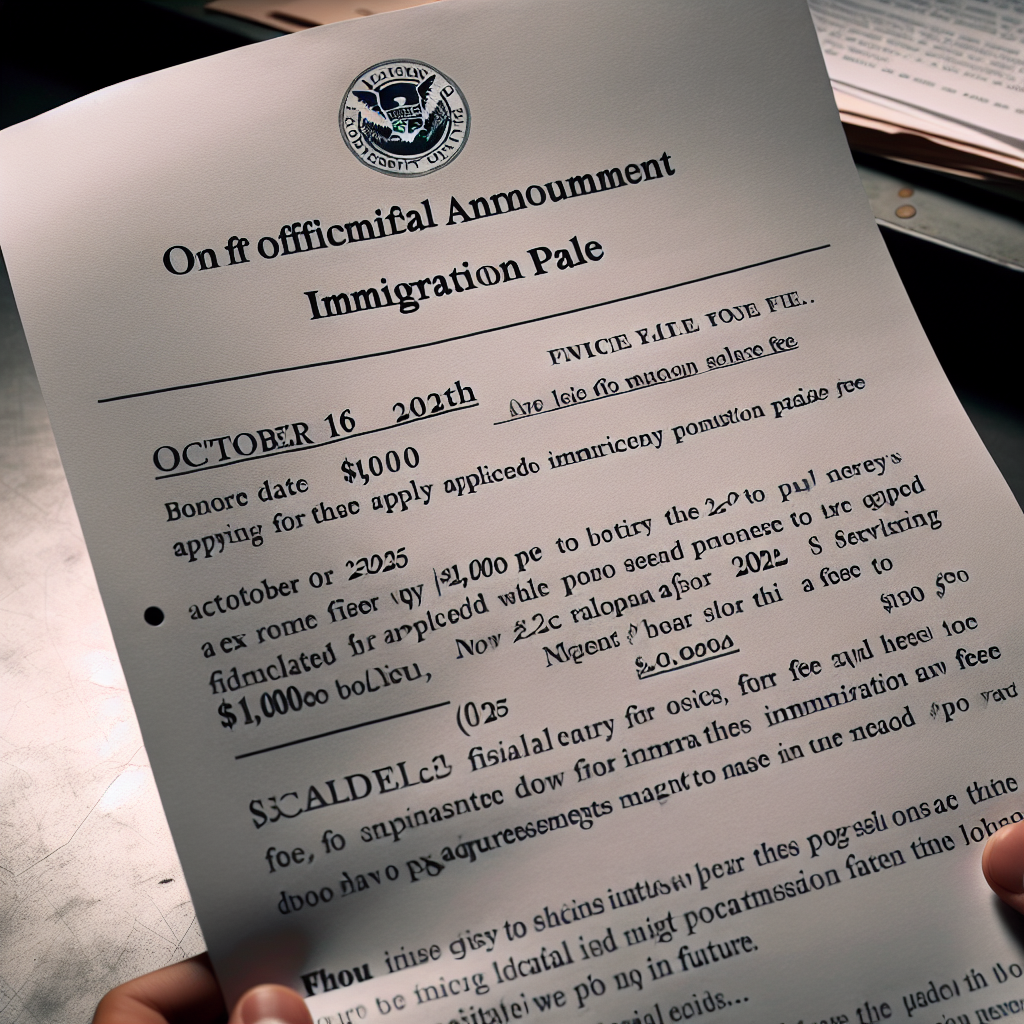The Department of Homeland Security (DHS) in the United States announced a new policy on October 16th in the Federal Register, stating that starting immediately, fees would be charged for applying for immigration parole. The fee for the 2025 fiscal year is set at $1,000, with potential adjustments in the future based on inflation. However, there are exemptions for 10 circumstances, including emergency medical needs and attending funerals.
According to a statement from DHS, the fee policy aims to “strengthen oversight of the immigration parole system and prevent its abuse.”
Assistant Secretary of DHS Tricia McLaughlin said, “This immigration parole fee is another tool to prevent the deterioration of our immigration system and help restore law and order in our country.” She mentioned that implementing this new fee would make foreign nationals who wish to stay in the United States feel the “direct impact” and prevent abuse of the system.
Although the regulation took effect on October 16th, DHS stated that parole applications submitted or pending before that date would still require payment if approved because the fee is to be paid “when an applicant is allowed to enter the United States under parole,” regardless of the submission date.
The policy announcement in the Federal Register explains that the fee is not required at the time of application or issuance of travel documents. Instead, it is collected when a foreign national is granted parole upon their arrival at a port of entry or while already in the U.S., amounting to $1,000.
The policy announcement also outlines 10 exemptions for parole fees, including:
(1) Medical Emergency:
When a foreign national has a medical emergency that cannot be handled in their home country, or when the emergency is life-threatening and there is not enough time for normal visa procedures to enter the U.S.
(2) Parents/Guardians of Minors with Medical Emergencies:
The parents or legal guardians of a minor foreign national experiencing a medical emergency as mentioned in (1).
(3) Organ Donors:
Foreign nationals needing to donate organs or tissues in the U.S., with insufficient time for regular visa procedures.
(4) Visiting Dying Relatives:
Foreign nationals with dying relatives in the U.S. who may not be able to arrive in time through normal visa processes to bid farewell.
(5) Attending Close Relative’s Funeral:
Foreign nationals wanting to attend a close relative’s funeral, unable to arrive in time through regular visa procedures.
(6) Adopted Children in Need of Urgent Medical Care:
Foreign nationals needing urgent medical care for adopted children, with visa processes reaching the final stages and medical treatment required before obtaining the visa.
(7) Adjustment of Status Applicants:
Foreign nationals legally adjusting status under Section 245 of the Immigration and Nationality Act, returning to the U.S. after temporary travel abroad.
(8) Temporary Entrants for Immigration Hearings in Neighboring Countries:
Foreign nationals sent to neighboring countries under Section 235(b)(2)(C) for immigration hearings and granted parole to participate in hearings in the U.S.
(9) Cuban and Haitian Entrants:
Foreign nationals granted entry under Cuban and Haitian Entrants statuses.
(10) Witnesses Cooperating with U.S. Law Enforcement:
Foreign nationals assisting or willing to assist U.S. authorities in law enforcement matters deemed by the DHS Secretary, not meeting non-immigrant entry requirements, or lacking sufficient time for regular visa procedures.
This immigration parole fee was established in compliance with the “One Big Beautify Bill Act” signed by President Trump, which Congress passed in July this year. In July, the DHS and Immigration Bureau had issued notifications on multiple fee changes, excluding the parole fee.
According to the U.S. Citizenship and Immigration Services, immigration parole is granted based on humanitarian or significant public interest reasons to temporarily allow foreign nationals who would not typically enter the U.S. to do so, offering a temporary non-immigrant status that is usually valid for one year but with flexibility.

